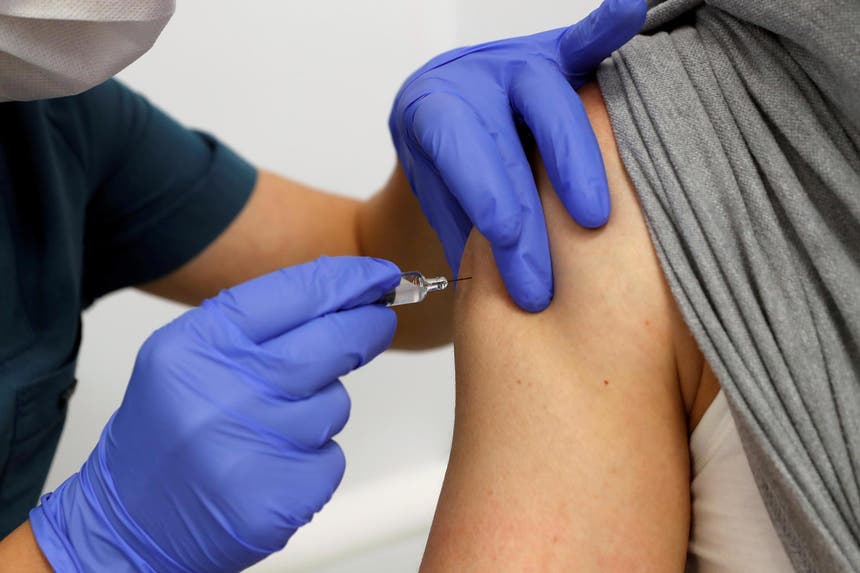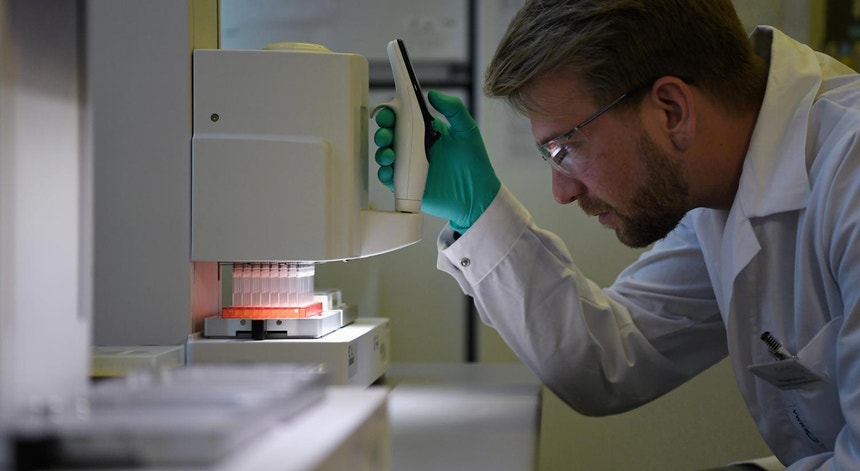As of Friday, AstraZeneca and Pfizer appeared to be at risk of facing the ire of Member States due to delays in delivering the promised weekly doses, although as long as they provided the promised cake by the end of March, their interests were taken care of, as the Italian newspaper revealed a few days ago The Republic.
After much controversy, the European Commission ended up publishing the contract signed with AstraZeneca, to justify its negotiating position. At issue, the justification given by the company for the delays, invoking problems with its producer, located in Belgium.
–
The Anglo-Swedish pharmaceutical company is giving priority to the United Kingdom in the delivery of vaccines, something contested by the President of the European Commission. “The text is very clear,” insisted Ursula Von der Leyen.
Somehow, an agreement will have been reached.
–
–
European Trade Commissioner Valdis Dombrovskis revealed that the mechanism “covers Covid-19 vaccines purchased under advance purchase contracts”.
The reason invoked was the transparency of the process and sufficient doses for the citizens of the European Union, which the European Commission had previously taken for granted. In the meantime, pharmaceutical companies that want to export their doses of vaccines from Covid-19 outside the EU will have to ask for their authorization, as of Saturday.
The European Commission believes that this ensures that the vaccines produced will benefit its citizens first. Brussels said it intended to inoculate as many European citizens as possible by the end of March and continued delays in vaccine delivery threatened these plans.
After all how much each vaccine costs … it’s a secret
It remains to be seen whether the solution now found will serve the future. And despite the revelation of a second contract [o primeiro publicado foi o firmado com a CureVac], several clauses and conditions remain in the mist.
–
For example, European citizens were not informed of the actual price of each dose of the vaccine, which varies by pharmaceutical company. Most Member States decided to inoculate their population free of charge, which seems to shelve questions.
In contracts, this information is hidden. The European Commission’s explanation is simple. “At this stage, the specific price per dose is still subject to confidentiality obligations”As you read in your Vaccine Q&A page.
Another possible controversy concerns who pays compensation to affected people in case something goes wrong.
In both contracts, with AstraZeneca and CureVac, this responsibility is assumed by each Member State, as read, respectively, in article 14.1 and article 1.23.3., in which pharmaceutical companies and “all their affiliates” and subcontractors, in a long list, should be “considered exempt” from any claims, including “death, physical, emotional or mental injuries, illness, disability ”, loss of property and income or legal costs.
These conditions are supposed to replicate in other contracts such as, for example, with Pfizer-Biontech. Only, nobody knows. They may be even more favorable to pharmaceutical companies.
“Unacceptable” compensation to pharmaceutical companies
Something that is also unknown is the counterparts demanded by pharmaceutical companies in case of possible non-compliance by the European Commission, a Member State or any other State.
There are at least two cases in the world that allow us to lift the veil over this, both referred to by the Argentine left-wing weekly, Brecha.
In Argentina, an article from Brecha published this Friday, the contract with Pfizer was blocked due to the issue of compensation, which Argentine deputies wanted to imput to the pharmaceutical company, a condition that the pharmaceutical company rejected.
–
However, the writers say, Jorge Rachid, a medical adviser to the Governor of the province of Buenos Aires revealed to a radio station that Pfizer demanded “unacceptable” payment guarantee conditions, “with unattainable goods, including oil and glaciers”.
In Peru, after having guaranteed that any dispute would be resolved by international arbitration, leading the Peruvian executive to abdicate his sovereign immunity, the US company demanded that the country, in case it lost the dispute, compensate it with Peruvian assets abroad.
Among these, movablediplomatic service, military aircraft or museum objects, states or Gap.
Multiplying doses and special syringes
The same article examines in depth the relationship between the delivery of Pfizer doses and the syringes used to deliver them.
 –
–
–
In the United States it was found that each vaccine bottle was not for five doses, as initially mentioned, but for six.
As a result, the pharmaceutical company was able to inform European services that, as of January 18, “each tray sent would contain 1,170 doses and not 975, with a 20 percent reduction in the number of bottles”, as reported by the Spanish newspaper The world January 25, 2021.With this change, Pfizer’s gross production expected for this year rises from 1,300 to 2,000 million doses, as company spokesmen reported. It looks like magic.
The problem is that most syringes cannot extract such six doses. Only “low dead content” calls can do this.
To give you an idea, of the more than 286 million syringes that Becton Dickinson – the world’s leading syringe producer – has promised to sell to the United States government, only 40 million are of that type. They are information from the company itself.
“For Pfizer, FDA approval [a agência dos EUA que autoriza a comercialização de medicamentos] of the extra dose, it means that you can fulfill your contract and receive payment in full from the United States with almost seven million vials less, ” The Washington Post, Sam Buffone, former legal advisor to the Department of Justice’s civil fraud division.
“Yet, many of these six doses may end up being wasted because vaccination centers don’t have the right tools “to extract them, stressed.
Pfizer’s German partner, Biontech, announced this month the production and sale of 50 million special syringes.
– .
Related

 –
–
